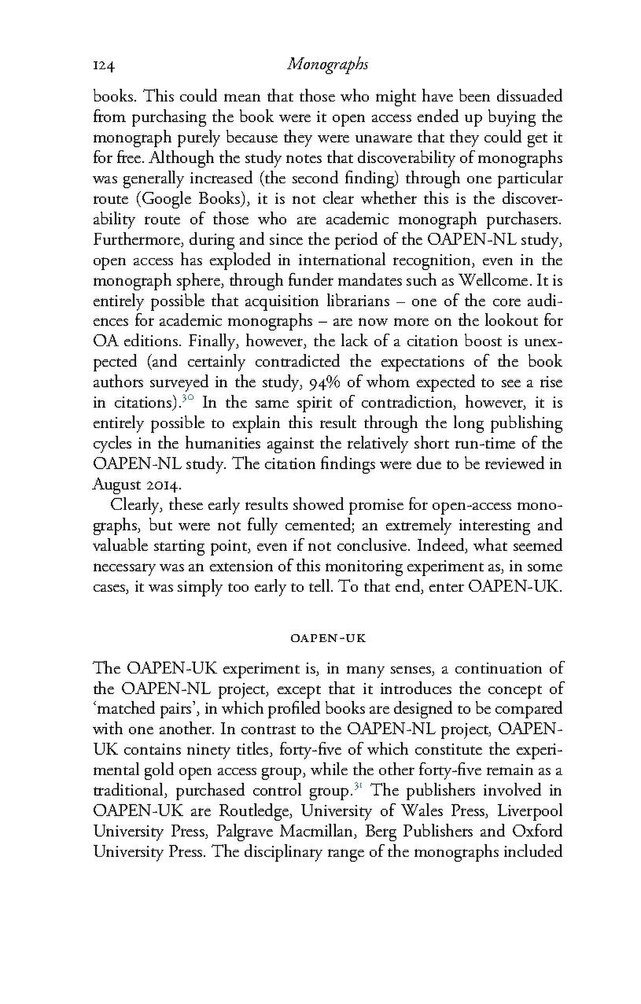books. This could mean that those who might have been dissuaded from purchasing the book were it open access ended up buying the monograph purely because they were unaware that they could get it for free. Although the study notes that discoverability of monographs was generally increased (the second finding) through one particular route (Google Books), it is not clear whether this is the discoverability route of those who are academic monograph purchasers. Furthermore, during and since the period of the OAPEN-NL study, open access has exploded in international recognition, even in the monograph sphere, through funder mandates such as Wellcome. It is entirely possible that acquisition librarians – one of the core audiences for academic monographs – are now more on the lookout for OA editions. Finally, however, the lack of a citation boost is unexpected (and certainly contradicted the expectations of the book authors surveyed in the study, 94% of whom expected to see a rise in citations).30 In the same spirit of contradiction, however, it is entirely possible to explain this result through the long publishing cycles in the humanities against the relatively short run-time of the OAPEN-NL study. The citation findings were due to be reviewed in August 2014.
Clearly, these early results showed promise for open-access monographs, but were not fully cemented; an extremely interesting and valuable starting point, even if not conclusive. Indeed, what seemed necessary was an extension of this monitoring experiment as, in some cases, it was simply too early to tell. To that end, enter OAPEN-UK.
oapen-uk
The OAPEN-UK experiment is, in many senses, a continuation of the OAPEN-NL project, except that it introduces the concept of ‘matched pairs’, in which profiled books are designed to be compared with one another. In contrast to the OAPEN-NL project, OAPENUK contains ninety titles, forty-five of which constitute the experimental gold open access group, while the other forty-five remain as a traditional, purchased control group.31 The publishers involved in OAPEN-UK are Routledge, University of Wales Press, Liverpool University Press, Palgrave Macmillan, Berg Publishers and Oxford University Press. The disciplinary range of the monographs included
